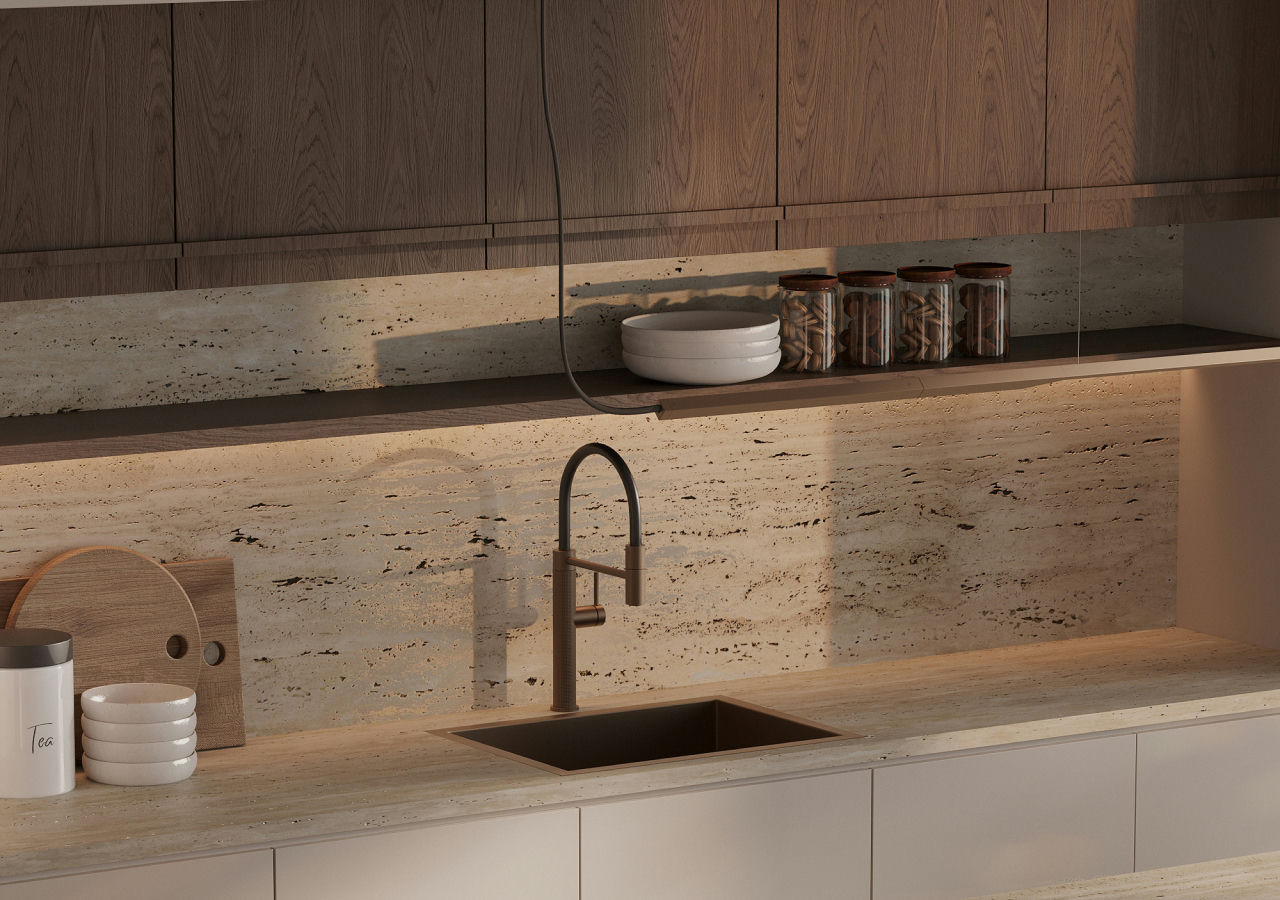Table of Contents
- Introduction to Dekton Countertops
- Applications and Design Versatility
- Dekton Finish and Color Options
- Dekton Maintenance: Tips and Tricks
- Pros and Cons of Dekton Countertops
- Dekton Sustainability and Value
- FAQ
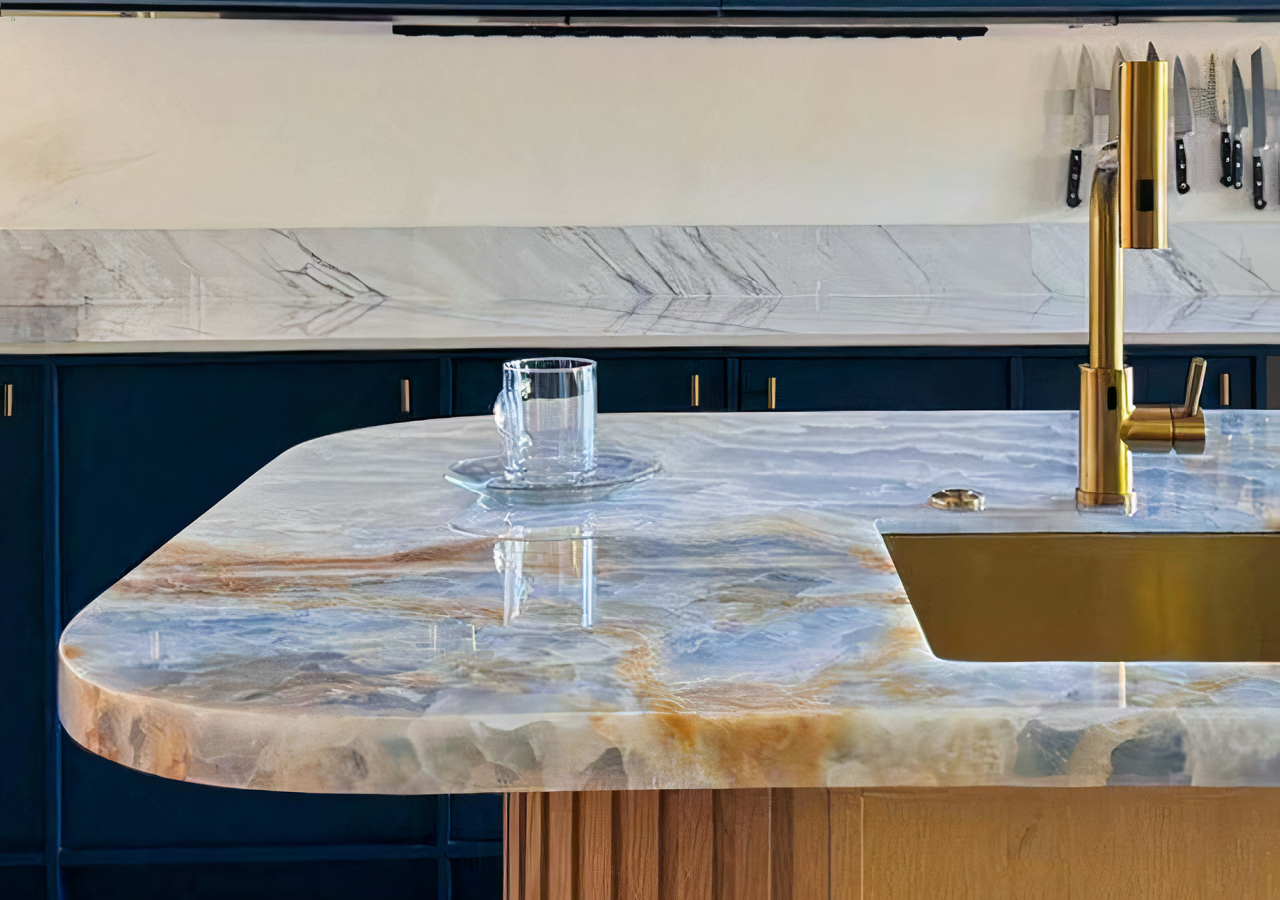
Dekton countertops are celebrated for their exceptional durability and resistance to UV light, heat, scratches, and stains, making them an ideal choice for kitchen countertops. Utilizing advanced sinterized particle technology, Dekton replicates the natural metamorphic process of stone in a much shorter time frame. Dekton stone countertops come in a variety of colors and finishes, offering both aesthetic appeal and long-lasting performance. Their ultra-compact surface ensures hygiene by preventing bacterial growth, making Dekton kitchen countertops a top-tier option for any home.
Applications and Design Versatility of Dekton
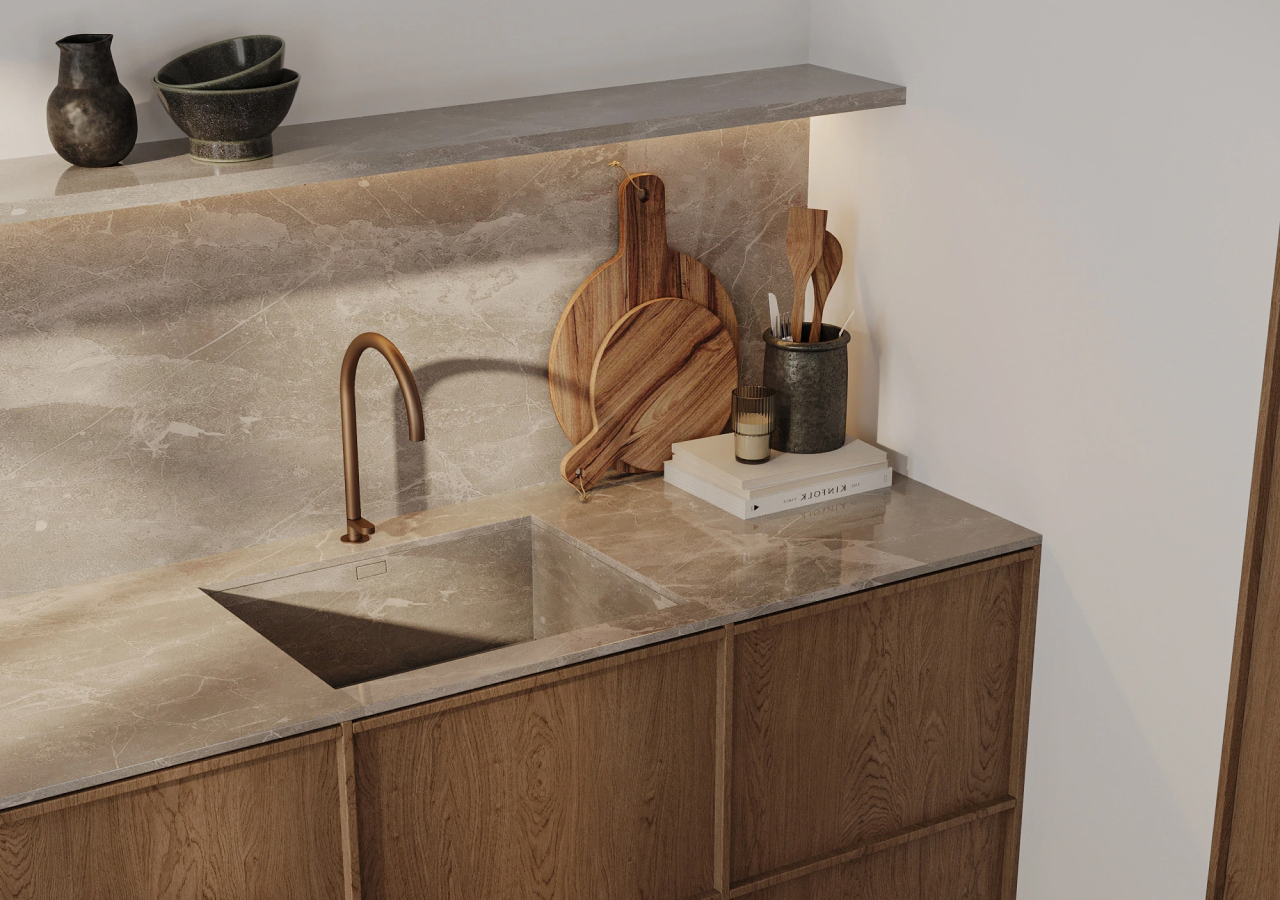
Dekton is more than just a countertop surface. Thanks to its durability and slim profile, it can be used in many areas of the home. Popular applications include backsplashes, island countertops, wall cladding, flooring, and even outdoor kitchens. With several thickness options available—4, 8, 12, and 20 mm—Dekton is suitable for both vertical and horizontal installations. Thinner slabs are ideal for cladding or wall panels, while thicker slabs are perfect for islands and countertops that require a sturdy and expressive design. This versatility makes Dekton a material that can unite design elements in different kitchen spaces.
Dekton Finish and Color Options
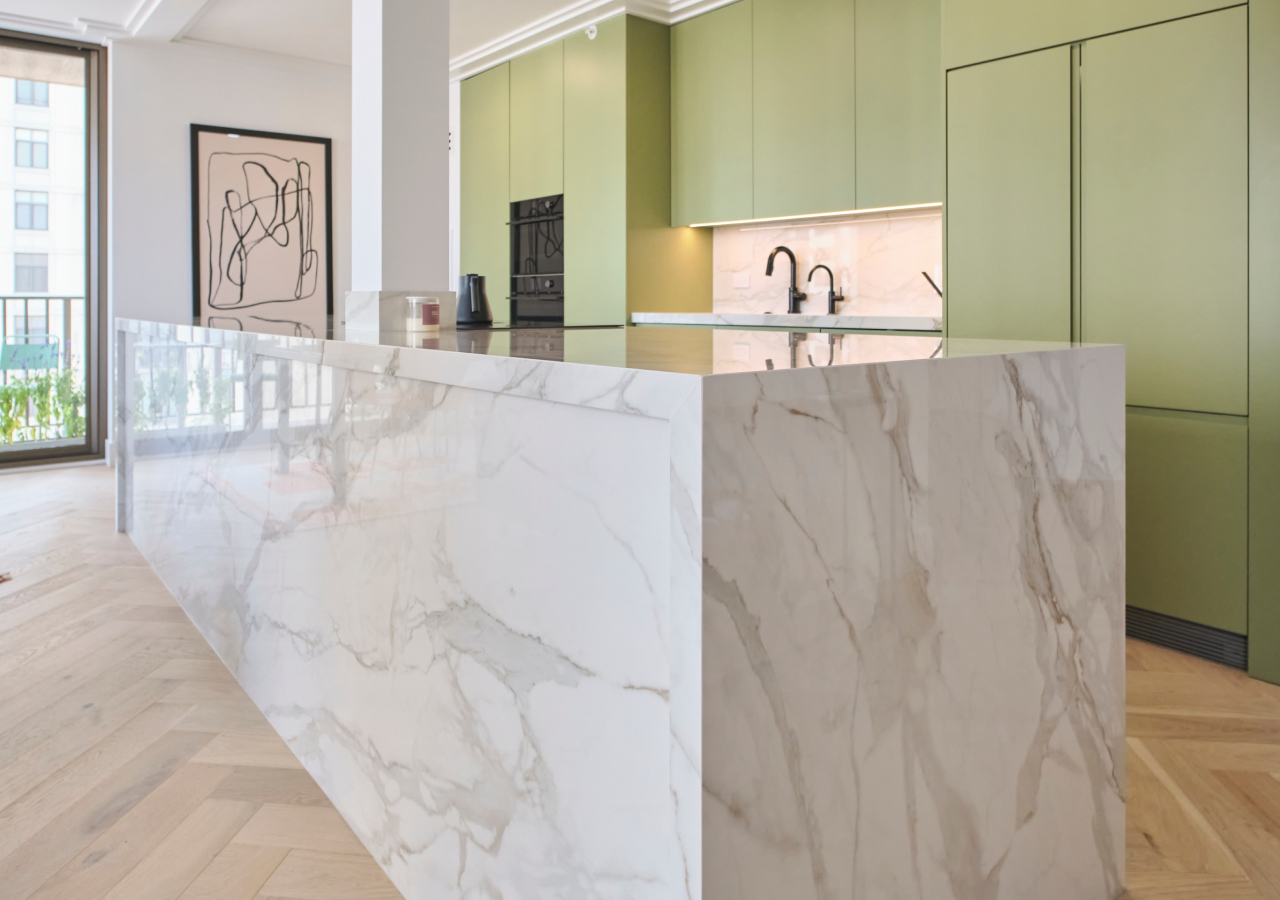
Dekton countertops are available in a wide range of finishes and patterns to suit different interior styles. Matte finishes create a modern, understated look and hide fingerprints well, while polished surfaces have a smooth, reflective appearance that enhances the brightness of a room. Textured options add personality and tactile richness, imitating natural stone or concrete.
The Dekton color scheme ranges from white and pale beige tones inspired by marble to industrial gray shades, warm brown hues, and bold dark colors. The collections feature natural stone patterns reproduced through engineered materials that combine long-lasting beauty with durable construction. The wide range of finishes allows homeowners and designers to choose from multiple Dekton surfaces to match their kitchen design, whether they prefer modern, minimalist, traditional, or eclectic styles.
Dekton Maintenance: Tips and Tricks
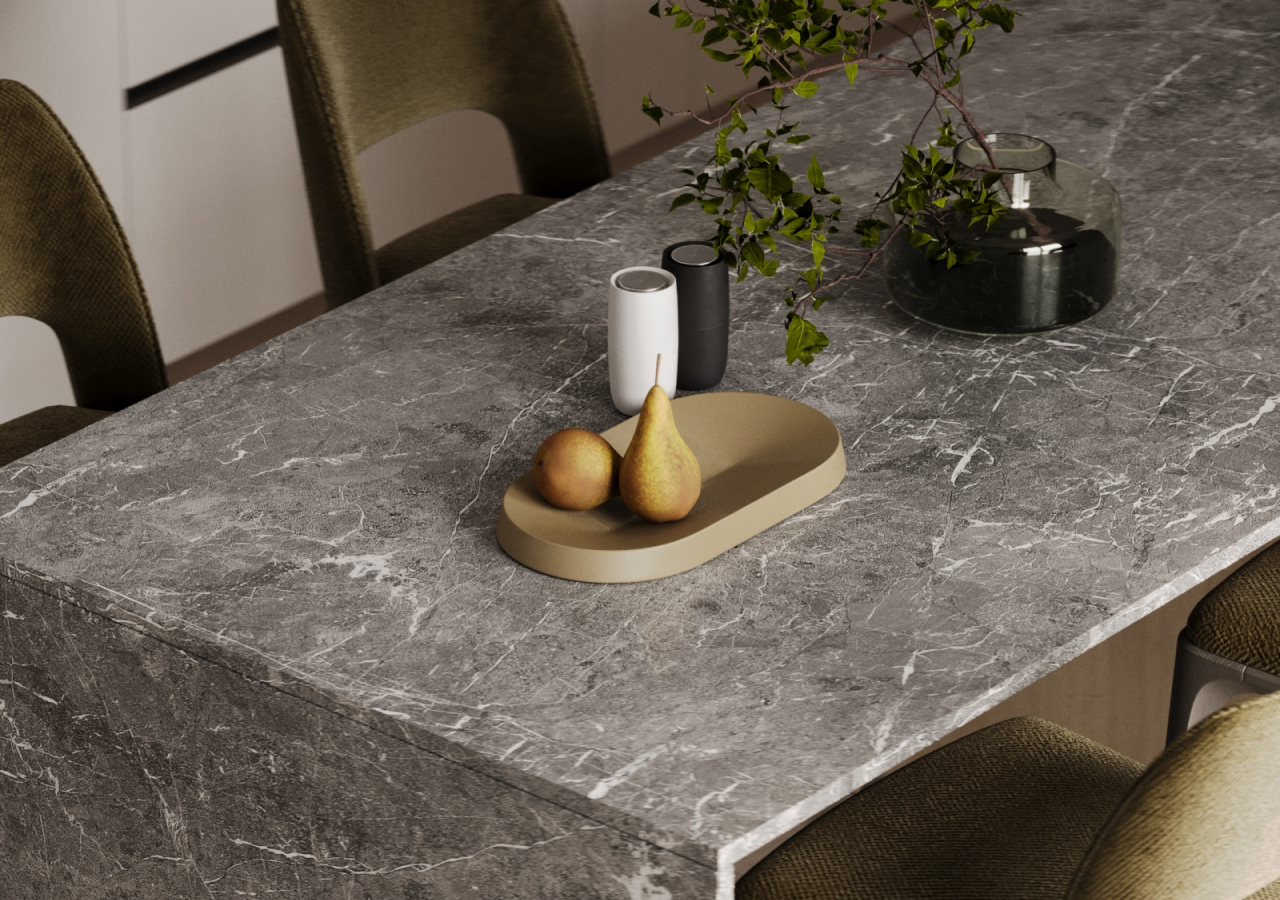
Routine Cleaning
Caring for your Dekton countertop is quite simple. A basic soap or mild cleaning solution that works for different surfaces will suffice for your everyday cleaning needs. Apply the cleaner to the stained area and rub in circular motions with a damp cloth. After letting the product sit for a few minutes, you should wipe off any remaining residue with a clean cloth. The surface needs to be dried using a towel. Dry the surface with a towel to keep it shiny and streak-free.
Removing Tough Stains
If you spill wine, coffee, tea, or anything else that stains easily, clean the surface right away. Even though Dekton is pretty stain-resistant, it's still best not to leave spills for too long. Apply the cleaning product directly to the stain and gently wipe it with a soft cloth. After a while, rinse with clean water. To keep your countertop in good condition, do not use rough sponges or powders that could scratch it.
Combatting Ink and Epoxy Stains
You can get rid of hard-to-remove stains, like ink, marker, and resin, with acetone or vinegar. Apply the solution to the stain, gently wipe it off with a cloth, and then rinse the area thoroughly. Always wear gloves and keep the area ventilated while using solvents.
Heat Guidelines
Dekton countertops are highly heat-resistant, allowing you to place hot dishes directly on the surface without concern. Still, it’s best to use coasters or heat pads for very hot items left for long periods, especially on thinner slabs (4 and 8 mm), to prevent potential damage.
Avoiding Scratches and Dents
Although Dekton is a durable surface that resists scratching, you should always use a dedicated cutting board when preparing food. This method will keep your knives sharp and your countertop looking its best. Additionally, avoid hitting the edges of the countertop with heavy objects, as these areas are more vulnerable.
If you're considering Dekton for your countertops, its impressive features make it an ideal choice for high-traffic, high-performance areas. Below is a summary of the key attributes that make Dekton a standout option:
Pros and Cons of Dekton Countertops
Pros

Durability
Dekton surfaces are famous for their extreme durability, which allows them to withstand numerous external forces. Dekton countertops are scratch-, stain-, and heat-resistant, and they remain durable even when exposed to direct sunlight for extended periods. This protective surface prevents damage, so Dekton countertops stay beautiful during heavy kitchen use and in areas with lots of foot traffic.
Easy Maintenance
Caring for a Dekton countertop is easy. No special products or procedures are required. Regular cleaning with mild detergent and a damp cloth will keep your countertop in perfect condition. This material does not require sealing or complex maintenance, making it ideal for everyday use in the long term.
Hygiene
Dekton's low porosity makes it resistant to stains and dirt. This prevents the growth of bacteria and germs, which is important in areas like kitchens that require a high level of hygiene.
Design Versatility
Dekton is available in a wide range of colors, textures, and finishes, allowing you to choose a countertop for any interior, from minimalist and modern kitchens to classic and eclectic solutions. The variety of options gives designers and homeowners virtually unlimited possibilities for implementing bold ideas.
UV Resistance
High resistance to sunlight ensures that the color and texture of the countertop will remain unchanged even after prolonged exposure to UV rays. This makes Dekton a suitable material for both indoor and outdoor kitchens, terraces, or other open spaces.
Cons
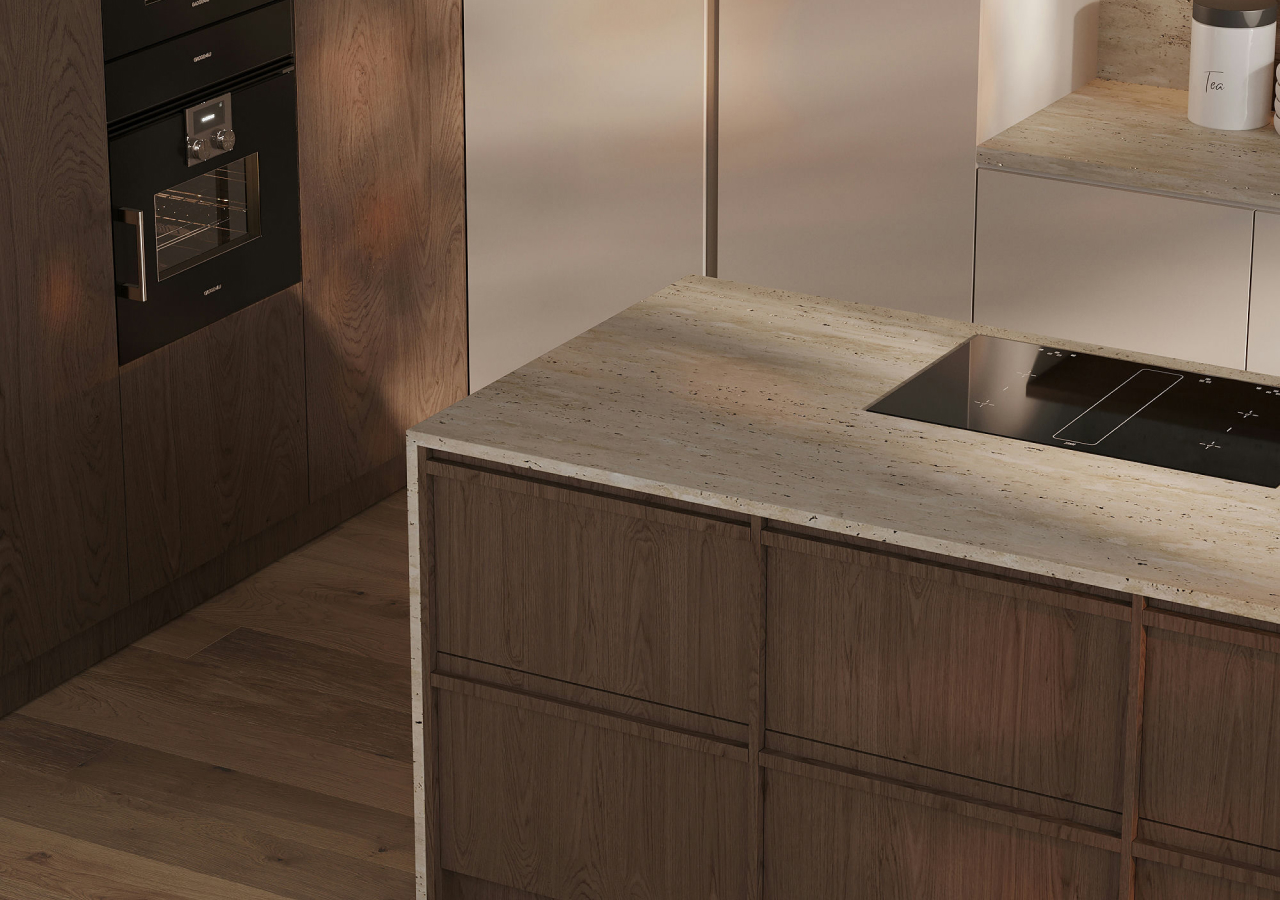
Cost
Among all other factors, the cost of Dekton tends to be its primary drawback. This product tends to cost more than common countertop materials, such as laminated MDF and natural stone. Be sure to factor this into your renovation budget, as the higher price reflects Dekton’s advanced performance and durability.
Edge Vulnerability
Although the material itself is extremely durable, its edges can be more sensitive to strong impacts or heavy objects falling on them. Therefore, care should be taken to protect the edges of the countertop during installation and use.
New Product
Dekton is a relatively new material on the countertop market, and although its characteristics are being actively tested, the long-term results of its use in residential settings are still being studied. This may be an important factor for those who view a countertop as an investment for decades.
Dekton Sustainability and Value
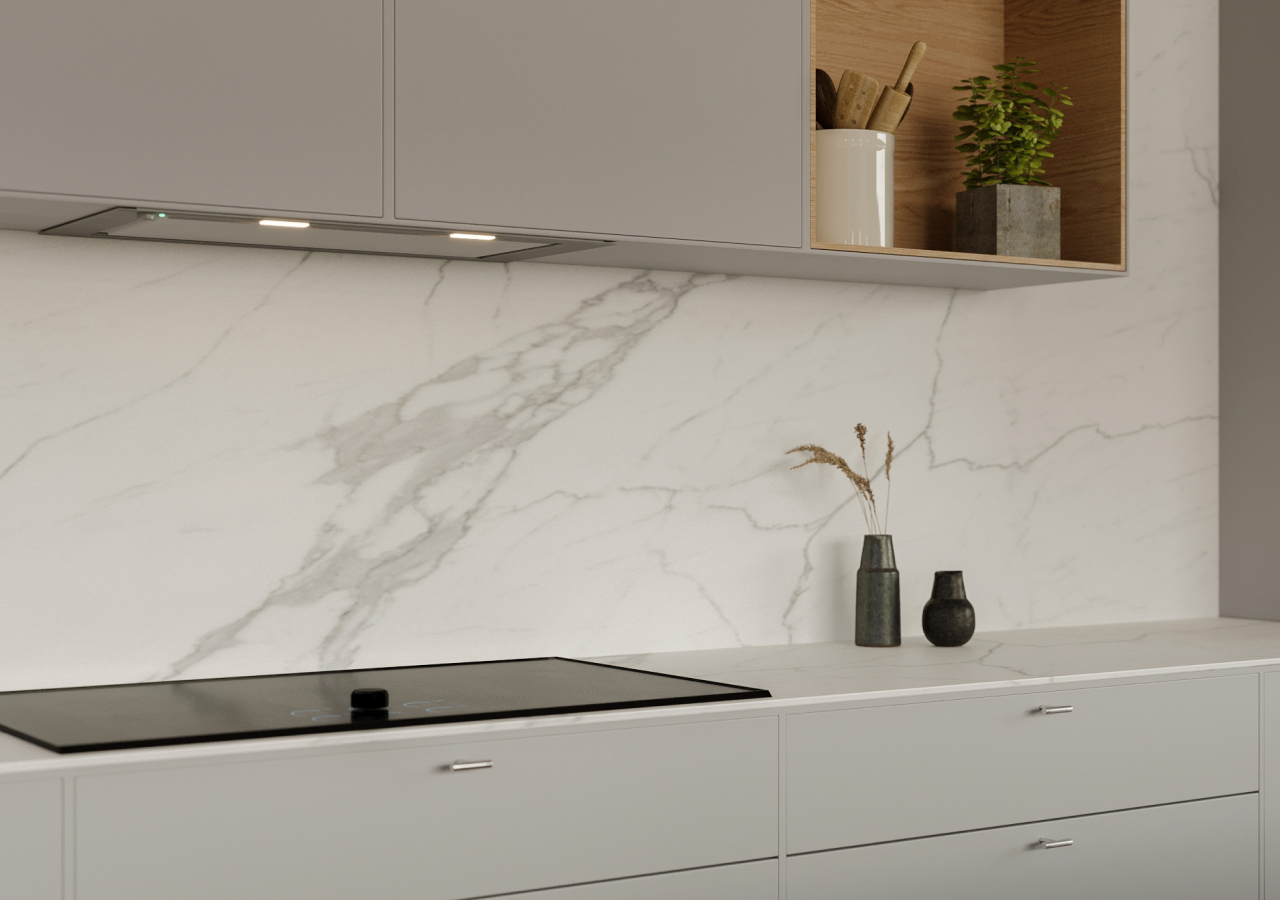
Dekton is an eco-friendly choice, with several collections produced using carbon-neutral methods that reduce environmental impact without compromising quality. Its exceptional durability also contributes to sustainability by eliminating the need for frequent replacements.
While Dekton typically costs more than standard countertop materials, its long lifespan and low maintenance make it a strong long-term investment. Resistant to scratches, stains, UV rays, and heat, it retains its beauty for decades. For homeowners who view the kitchen as a lasting asset, Dekton offers both reliable performance and meaningful environmental benefits.
Dekton countertops combine advanced technology with timeless design, making them one of the most durable and versatile surfaces available today. With a wide range of finishes, strong resistance to daily wear, and eco-conscious production, Dekton offers both beauty and long-term value. For homeowners seeking a countertop that balances style, performance, and sustainability, Dekton is a choice built to last.
FAQ
What makes Dekton countertops unique?
Dekton countertops are unique due to their high resistance to UV light, heat, scratches, and stains, along with their diverse color options and finishes. The ultra-compact surface also ensures hygiene by preventing bacterial growth.
How do I clean and maintain my Dekton countertop?
Routine cleaning involves using neutral soap and a damp microfiber cloth. For tough stains, use detergent or solvent as needed, and always rinse thoroughly. Use mats for prolonged heat exposure to protect the surface.
Are Dekton countertops suitable for outdoor use?
Yes, Dekton's high resistance to UV light makes it suitable for outdoor applications, ensuring color stability and durability.
What are the potential downsides of choosing Dekton countertops?
Dekton countertops can be pricier than some traditional materials, and their edges may chip if hit with significant force. Additionally, as a newer product, its long-term residential performance is still being assessed.

